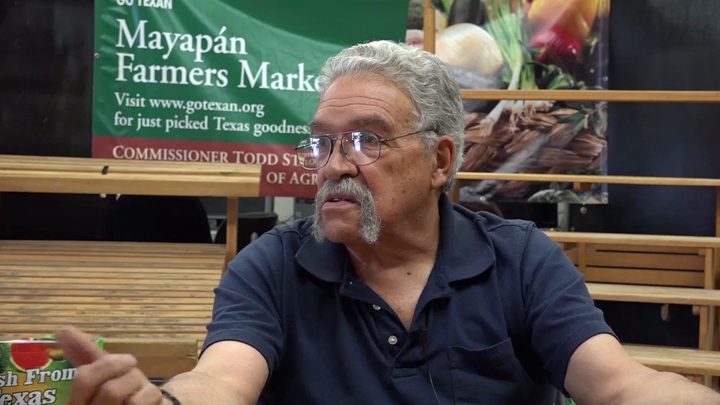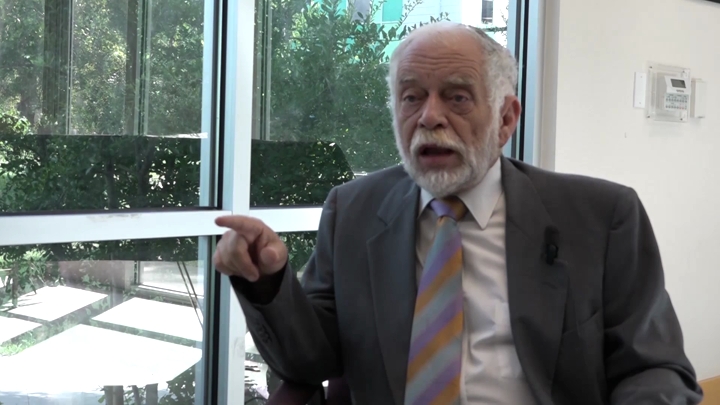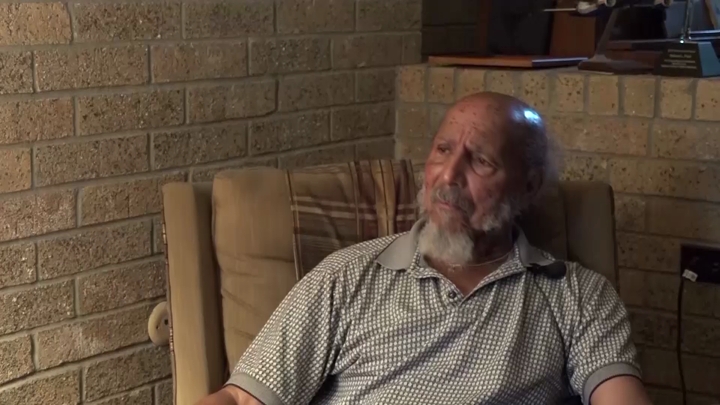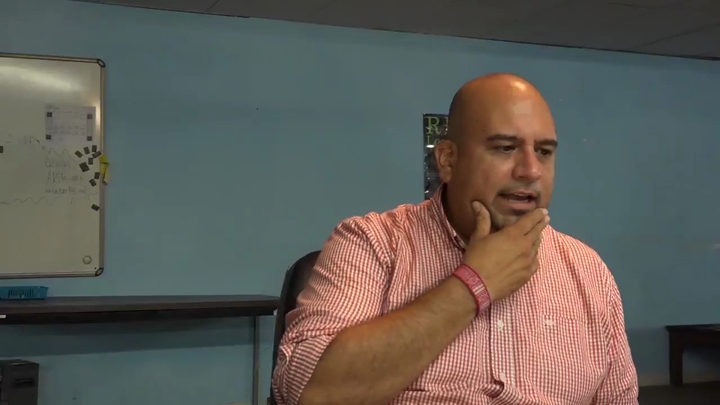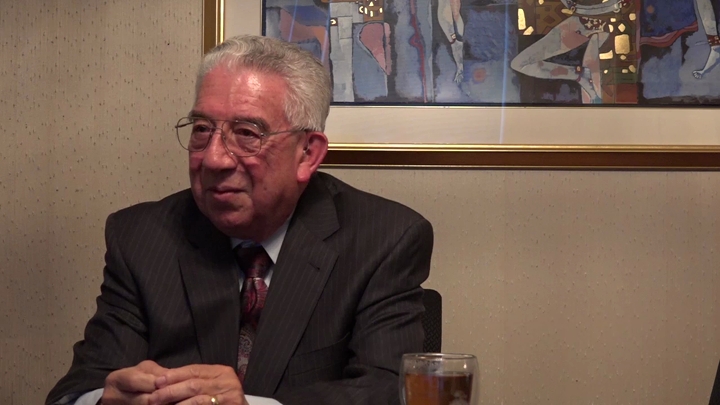Harrington / Work in the Present
sign up or sign in to add/edit transcript
Harrington : Then do you losses are tied. I mention the case of the high school kid that was shot in the back. And then there was a case how this woman, Mrs. Contreas was coming in from crossing the border. She went down by Progresso, South of Westlaco. She was nine months pregnant and had gone over to Nuevo Progresso. She was coming back and had a cousin, or a friend, who was going to take care of her kids. She had like eight kids when she went and had a baby. So like a nanny kind of thing. And I stocked her at the border and interrogated are pretty fiercely. And she had a heart attack and died. We tried that in front of a jury and we lost. Unbelievable! That we lost the case. You know what was really sad, is the father was an alcoholic. And apparently he had abused a couple of the daughters. I knew it meant that that whole family, I don’t know if it did but I know the odds at that point we’re just horrific for the family. And that hurt a lot. To lose that case. It was always much harder to lose the personal cases, like the kid that was shot, than to lose the institutional cases. You have to keep moving. Always move forward Arionus: Do you still adjunct at the law school? Harrington : No, I don’t teach at the law school but what I do is teach a civil liberties course at night. A writing course at UT. Then I’m going to teach one at Texas State. In the spring and then I teach Iraqi college students that are in a state department program. So I teach them about civil liberties and society. Arionus: Why are you doing this? Harrington : Well because that's a way to help make change. I have a lot of experience. I can dream in color about civil rights and civil liberties so it does not hurt to pass that on. It is very important for people, clearly it’s important for the people of Iraq do you understand what civil society is about. As a whole, the country doesn’t understand right now we have pretty well demolished that. So it is a responsibility to help do that. The same thing with the classes that I teach in the evening these are our future leaders so why not. Arionus: I think this is a great question. It seems to me one of the major themes that are running through your life, as I understand it, that we talked about is there is a responsibility to the community that you live. You had a long and successful career you could just retire and work on your house or garden, but you choose to continue to service. Can you talk about that drive that makes you want to leave a legacy and pass that knowledge on? Harrington : I don’t really care about leaving the legacy. I just think it is my responsibility, it is in my DNA to serve the community. That is something I think I learned from my grandmother. That if you take your religious believes seriously, which I do, then you have to put it into practice. Arionus: One question I had, maybe this is like a broad question. You talked about how the Vatican and the Catholic church became more liberal through social justice. I know in San Antonio at the archdiocese there were particular priest who made a great impact. As an outsider it seems to me that there has been a change in the structure of the organization and we don’t necessarily see the priest on the front line advocating for social change. Is that something you notice? And why do you think that is? Harrington : It is a big change. It is a reversal. And that was John Paul II and Benedict, both very conservative. They did not change the teaching on social justice but the activism. They were very good to the world in terms of progressive analysis. No doubt about that. But internally, very conservative. You had to toe the party line you were not going to out on the picketline. That was not the role of the priest. It was a very dramatic change. It was called liberation theology. John Paul hated it. Francis is a little more receptive. But he was pope forever, 22 years. So that means he appointed virtually every bishop in the world. And according to who he wanted. The earlier popes were more progressive. But when you are there for 22 years you can’t undo everything that was done. And man he did it. And I tell you, you talk to some of the bishops, the younger group, and they don’t have a clue about social justice. You say look at this and then back to tradition goes way back into the 19th century. They do not have a clue it is really sad. And because they don’t have a clue it means they are not going to pass it on. It is really sad.
| Interview | Interview with Jim Harrington |
| Subjects | Family |
| Religion | |
| Religion › Religious Denominations | |
| Community Organizations › Community outreach | |
| Education | |
| Education › Higher Education | |
| Education › Teachers and Administrators | |
| Court Cases | |
| Police and Law Enforcement › Border Patrol | |
| Ideology › Conservatism | |
| Tags | University of Texas at Austin |
| Texas State University | |
| sign up or sign in to add/edit tags | |
| Interview date | 2016-06-13 |
| Interview source | CRBB Summer 2016 |
| Interviewees | Harrington, Jim |
| Locations | Austin, TX |
| Duration | 00:06:36 |
| Citation | "Work in the Present ," from Jim Harrington oral history interview with , June 13, 2016, Austin, Civil Rights in Black and Brown Interview Database, https://crbb.tcu.edu/clips/5508/work-in-the-present, accessed February 26, 2026 |


